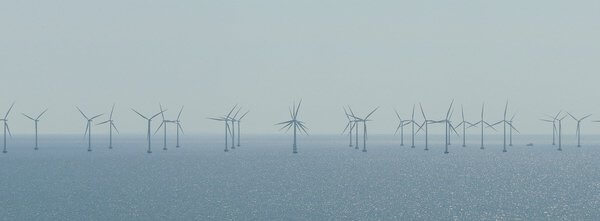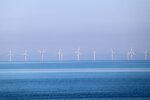News Release from windfair.net
Wind Industry Profile of
Spain takes first steps towards offshore wind energy
Although preliminary studies had already shown in the past that there is considerable potential for renewable energies in Spanish waters, the use of which could contribute to achieving the current national climate protection goals, there are no offshore wind farms in Spain so far.
Now, however, a long-awaited breakthrough occurred: After more than four years of work, the government in Madrid finally approved the maritime spatial plans - the so-called POEM - for the marine areas off the Spanish coasts this week. This clears the way for the development of further sources of renewable energy.
The maritime spatial plans are intended to enable optimal use of marine space, reduce conflicts and promote the coexistence of different actors such as fisheries and the energy sector, while ensuring the protection of sensitive ecosystems, habitats and species. Spain has now drawn up plans for five different marine zones: North Atlantic, South Atlantic, Straits and Alboran, Levantine-Balearic and the Canary Islands. In total, around 5000 square kilometres are reserved there for offshore wind development.

The potential for offshore wind off the Spanish coast is great (Image: Pixabay)
The plans were well received by the industry. Spanish company BlueFloat Energy, which is developing floating wind farms together with Sener, said: "The POEMs represent a turning point for the development of offshore wind in Spain, a key sector for the energy transition in our country. Their publication is the starting point for developers to propel offshore wind development in strict compliance with current legislation and to demonstrate the compatibility of their projects in terms of sea space use and environment."
BlueFloat Energy, which together with Sener has plans for offshore wind projects of 1.25 gigawatts off the coast of the Canary Islands, Catalonia and Galicia, called on the government to quickly establish a legal framework and criteria for public tenders.
At the same time, the companies warned of potential problems similar to onshore wind, where conflicts with local residents have increased in Spain in recent years. "Large infrastructures have often generated social and territorial rejection, mainly due to the lack of transparency, dialogue and consensus with citizens and stakeholders. It is time to commit – and tenders could be designed to require it – to a balance between technical feasibility, social acceptance and local benefits. This is the only way to move towards a fairer and more sustainable energy transition."
- Author:
- Katrin Radtke
- Email:
- press@windfair.net
- Keywords:
- Spain, marine spatial plan, planning, maritime, offshore, wind farm, government, coast, POEM, BlueFloat Energy, project



























